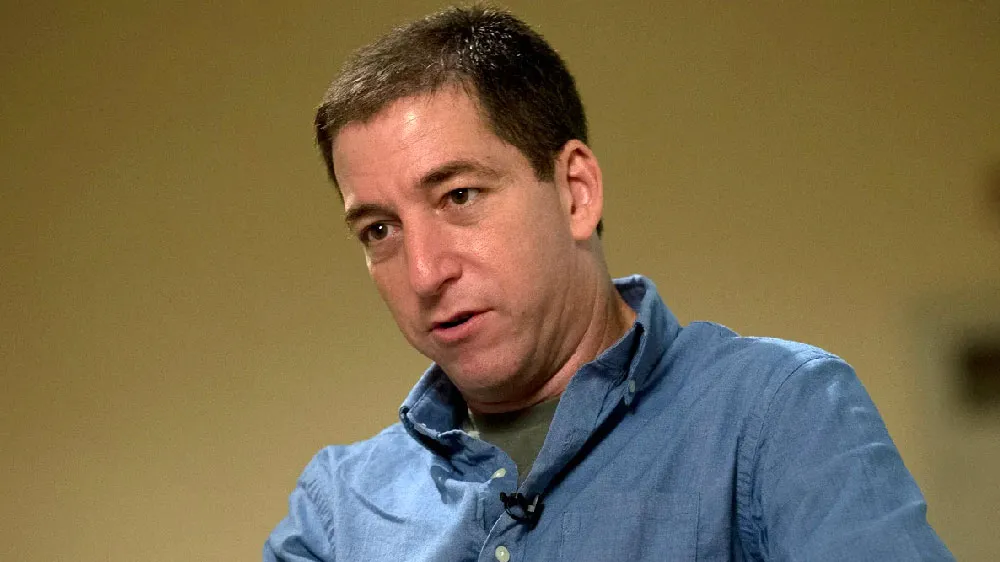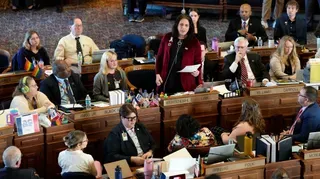April 26, 2015
Status of LGBT Student Groups May Face Court Fight
Kilian Melloy READ TIME: 5 MIN.
This week signified a victory for CUAllies, the unofficial LGBT campus group at The Catholic University of America. But whether the group and its allies in the larger LGBT community have won the war, or merely a minor skirmish, remains unknown for the time being.
CUAllies has been seeking official recognition from the university, which was founded on Roman Catholic principles, for the past decade. Although the university had an officially recognized LGBT group from the 1980s through the early 2000s, newer generations of administrators have resisted attempts to allow such a group to reconstitute in an official capacity.
Now, by dint of a failure to act by Congress, CUAllies hopes it has gained the upper hand against the administration in its struggle to be recognized.
The reason? A bill recently passed by the D.C. Council last December, known as the Human Rights Amendment Act. That bill, which was signed into law by Mayor Muriel Bowser (D) earlier this year, amends the District's longstanding and comprehensive Human Rights Act by eliminating a provision that exempted religiously-affiliated educational institutions from having to abide by nondiscrimination provisions in the Human Rights Act that pertain to sexual orientation and gender identity.
Known as the Armstrong Amendment, the exemption had been forced upon the District by Congress in 1989, in response to a 1987 appeals court decision that ruled that Georgetown University, another Catholic educational institution, had violated the Human Rights Act by denying equal treatment to a gay student group.
It states that schools or universities affiliated with major religions may "deny, restrict, abridge, or condition the use of any fund, service, facility, or benefit, or the granting of any endorsement, approval, or recognition" to groups engaged in the promotion of homosexuality.
By removing the Armstrong Amendment, the D.C. Council stoked the ire of conservative groups and lawmakers in Congress, with Sens. Ted Cruz (R-Tx.) and James Lankford (R-Okla.) introducing a "resolution of disapproval" in the Senate, and U.S. Rep. Vicki Hartzler (R-Mo.) introducing a similar measure in the House of Representatives. Because D.C. laws are subject to congressional review, a resolution is essentially a backdoor tactic by which Congress can attempt to overturn a law it dislikes.
But on Friday, April 17, the hopes of social conservatives successfully overturning the Council bill appeared to have been extinguished when the House Oversight and Government Reform Committee, which oversees District affairs, announced it would not mark up Hartzler's resolution. Although the resolution would likely have failed to garner the necessary signatures, including that of President Barack Obama (D), Friday's announcement essentially meant that, at least for now, the amended Human Rights Act would stay in place, sans the exemption for religious schools.
Following Congress's decision, Natasha Backman, a graduating senior at Catholic and the head of CUAllies, expressed hope that the prohibition on discrimination would encourage university administrators to work more collaboratively to reach an understanding with CUAllies as to its official status and ability to access university resources.
Backman isn't naive - she pointed out that university administrators at Catholic have relished being confrontational and are quick to react to any perceived slight or action that they feel defies Church teaching - and nor has she taken any options off the table when it comes to legal action.
Internally, members of CUAllies have broached the idea of working with the lawyer who successfully argued the 1987 Georgetown case to help the CUAllies achieve its ultimate goal of official recognition. Backman believes CUA should follow the example of Georgetown, which, in the years following its loss in the lawsuit, has become more tolerant and willing to embrace LGBT rights without betraying the school's core Catholic beliefs.
Backman isn't the only one willing to reserve the option of a court fight. In an op-ed titled "Disagreement is not discrimination," which appeared in The Washington Post last weekend, Cardinal Donald Wuerl, the archbishop of Washington, and John Garvey, the president of The Catholic University of America, argued that they believe they are in the right and should not be forced to give equal time or resources to groups whose mission is opposed to Catholic teaching.
"[The Human Rights Amendment law] says that religious institutions are guilty of discrimination against gay and lesbian student groups if...they deny them the same 'rights and facilities as other officially recognized student groups,'" Wuerl and Garvey wrote. "[I]t seems peculiar to say that the church discriminates, in some morally objectionable way, by declining to give official support to groups that hold views opposed to its own."
While Wuerl and Garvey's op-ed was sent to press prior to the OGR committee's announcement that it would not pursue a resolution of disapproval, Catholic University was still standing by the sentiment previously penned by its president, raising the specter of a drawn-out legal fight.
"We do not expect to change our policies regardless of the fate of the resolution of disapproval, though of course we very much support its passage," CUA's spokesman, Victor Nakas, said in a statement. "We believe that the First Amendment would protect us against enforcement of the D.C. Council's new law.... If this matter ends up in the courts, we expect to prevail."
Ryan T. Anderson, who specializes marriage and religious liberty at the conservative think tank The Heritage Foundation, suggested that the schools would prevail in court even if Congress did not take action. He feels both the First Amendment to the U.S. Constitution and the 1993 federal version of the Religious Freedom Restoration Act still apply to the District, meaning they would trump any local laws passed by the D.C. Council.
"I don't know what OGR will or won't do," Anderson says. "But any movement committed to liberty needs to understand and protect the religious liberty of private religious schools."
Citing a previous policy brief he had written covering ways to respond to the HRAA, Anderson offered yet another alternative: budget riders. Every year, when funds for the District are appropriated, congressional leaders could attach or insert rides that prohibit the District government from using its own taxpayer money to enforce the implementation of the amended Human Rights Act. Such a move might stand a better chance of passing, as President Obama might be less willing to veto an appropriations bill than he would a resolution of disapproval seeking to overturn a law passed by the District's legally elected representatives.
Sophomore Steve Morris, a member of CUAllies and chairman of the College Republicans, is optimistic about Congress's decision not to seek an overturn of the amended human rights law: "We have seen the school's lack of logical and moral case catch up with their lack of legal case for denying CUAllies recognition."
Morris says that the majority of CUA students - even devout Catholics - differ with administrators when it comes to recognizing groups like CUAllies. His own conservative beliefs -- both morally and politically - inform his stance that an LGBT group can co-exist alongside socially conservative clubs, just as College Democrats and Republicans, and a wide swath of ethnically-diverse student organizations, already do.
"Conservatives believe in free markets and a free market of ideas," Morris says. "The only people who have anything to fear from debate are those who can't stand strong in their beliefs."
Kilian Melloy serves as EDGE Media Network's Associate Arts Editor and Staff Contributor. His professional memberships include the National Lesbian & Gay Journalists Association, the Boston Online Film Critics Association, The Gay and Lesbian Entertainment Critics Association, and the Boston Theater Critics Association's Elliot Norton Awards Committee.






